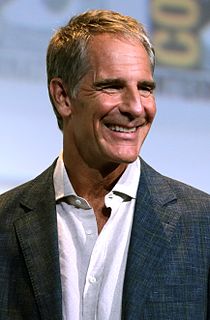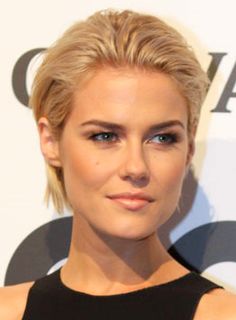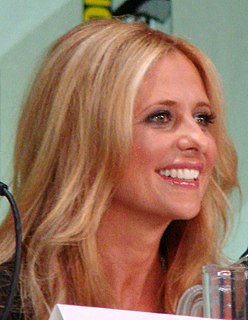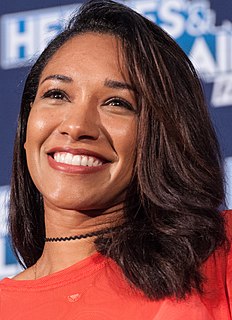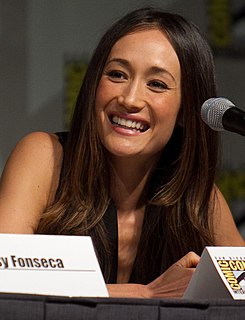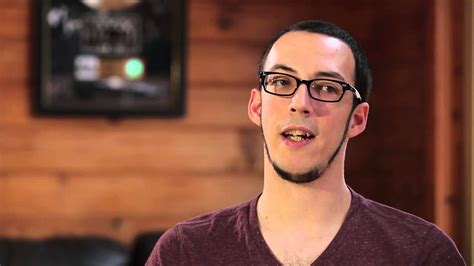A Quote by Diane Kruger
Television is also a great tool for women. As you know, the best female roles are often on television, so it's a very exciting time. I've really embraced it. The pace is great, but also not so great sometimes. You feel like you have to make sure to pay attention, at all times, to not let anything slip through.
Related Quotes
I think the superhero platform gives the female character, you know, a relate-ability for the male audience as well. So, I think that's why people are kinda gravitating towards female super hero characters, and also female characters in general as big parts of the film. So, that's great for us, female actors who want to do roles like that, which is really great.
And when you're with a great crew like we had, it becomes a thrilling, again, collaboration, which is to me one of the great aspects of the process that you go through. I find myself at this point in my career, getting potentially, incredibly bored if I stand around a lot, so that's why I really like the pace of television.
I certainly don't feel there's a distinction to be made between a television and a film actor. I think there's a distinction between great actors and not so great actors. But I really think if you watch a person working in television give a wonderful performance, that person is f - ing great, because there is no time.
I traveled and worked with amazing actors, like Andy Garcia, Alec Baldwin, Brendan Fraser, Forest Whitaker, Lee Pace. It was this great learning experience. And then, I started watching a lot of television. I was always in these foreign countries and I would get TV shows on DVD, and I started to realize that all of the amazing roles for women were on television. I was spoiled by Buffy because I thought that was the way it was everywhere, and it's not.
I don't think you can be successful in television without appealing to women. I don't think it's possible. I think that men like women. It doesn't really matter what they do - they love anything. But women don't necessarily like every woman, so I think that's a challenge to get the female audience to not only relate to you but also like you.
Not only do you need great lyrics, a great message, a great story, great vocals, great chords... you also need great instrumentation, great editing, great sonics, great mixing, and great mastering. It all comes together to make something truly great, and I think each element combines together to create a powerful impact on the consumer.
I love really exploring... you know, a cop drama for example is a great way to explore class in this country and explore, you know, really, identity in the country and who we are in a way that is extremely exciting, but it's also real, you know, it's also real people and real drama. The same with the military. I mean, a good science fiction story is also great.
I've really dreamed of doing television. All of us do television, coming up. But when I was coming up, television was a black hole for actors. Now, television has a certain cache. Now everybody wants to be on TV because they're doing adult dramas. If you're an actor, it's like, "Well, get me on television," because it's the only place you can do it and also make a living at it. If my kids need shoes, I better do a TV show because I damn sure don't make any money with independent films.
I've noticed a lot of people talking about the wealth of roles for powerful women in television lately. And when I look around the room at the women here and I think about the performances that I've watched this year, what I see actually are women who are sometimes powerful and sometimes not. Sometimes sexy and sometimes not. Sometimes honourable and sometimes not. And what I think is new is the wealth of roles for actual women in television and in film. That's what I think is revolutionary and evolutionary and it's what turning me on.
You can't really gauge the difficulties of television. There's difficulties and joys that happen with an amazing, great team, when one is working. Television can be a very frustrating job for almost anybody working in television, because you're shooting episodically, and you don't know one scene from the next, and maybe they change around.



